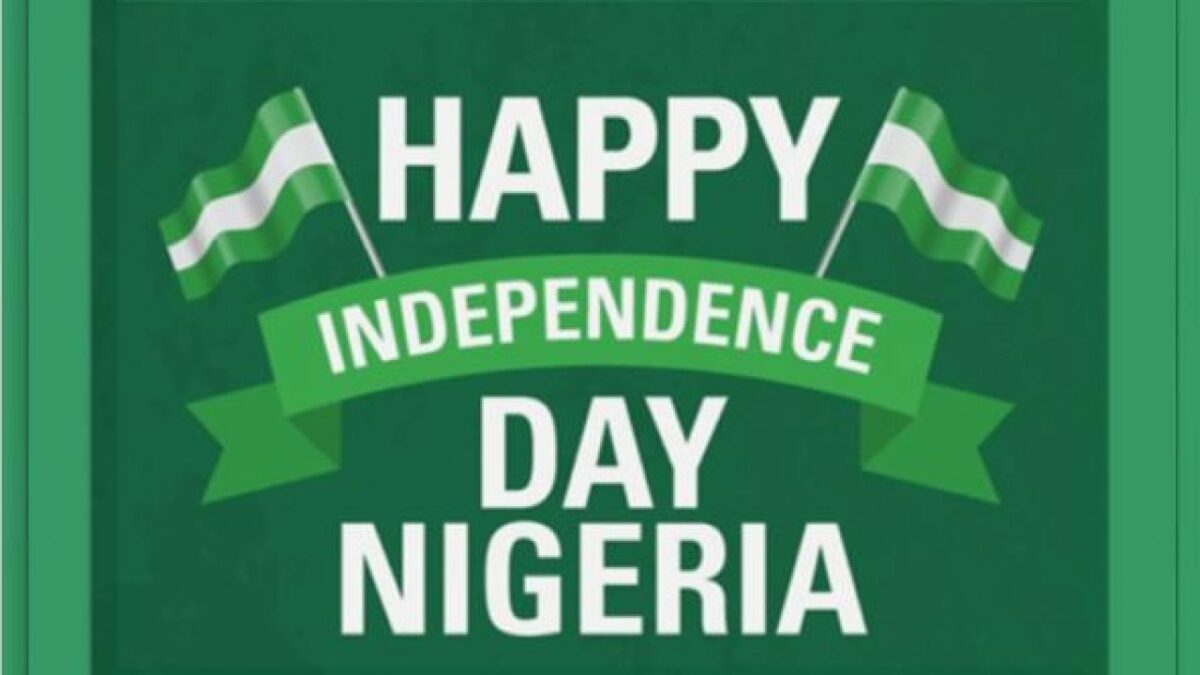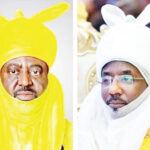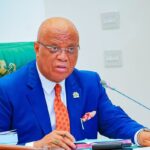By Chiedu Uche Okoye
A healthy adult person, who wears diapers is a freak. But Nigeria could be likened to a mature man who is always in diapers. So, is Nigeria not the man-child that is unable to realize her potentials? But she is called the ‘Giant of Africa’ because she has a large landmass and humongous population. In today’s world, however, a country’s huge population and large landmass cannot qualify it to enter the club of industrialized and developed countries. The stark fact is that Nigeria has abundant human and material resources, which her leaders can utilize to make her great.
Why then is Nigeria still trapped in the quagmire of economic stagnation and technological backwardness? The answer is obvious. The inimitable raconteur, Chinua Achebe, diagnosed Nigeria as having a leadership problem, which accounts for our economic and technological underdevelopment. That is the chief reason countries that are at par with Nigeria when she attained political sovereignty in 1960 have overtaken her in the areas of economic and technological advancement.
The indisputable fact is that Nigeria has never got it right politically since the British Union Jack was lowered and our flag hoisted to signify our political freedom. To achieve their selfish desires, the departing British imperialists clandestinely helped Alhaji Tafawa Balewa to defeat his major political betters and foes, Chief Obafemi Awolowo and Dr Nnamdi Azikiwe. So, Balewa became our prime minister in 1960. But did he do well as our national leader, and transform our country positively?
Under Balewa’s political administration, Nigeria was embroiled in bloody conflicts which resulted in the January 15, 1966, coup and the counter of July 1966. Thereafter, the pogrom of the Igbo people happened, which partly caused the 32-month fratricidal Nigeria- Biafra Civil War. The war caused the depredation of our economy and the wastage of millions of human lives.
But if either Chief Awolowo or Azikiwe had become our president in 1960, our economic fortunes and political trajectory would have been different. The duo were political ideologues who set store by knowledge. Based on extrapolations from Awolowo’s leadership praxis in the western region, he would have been the best president Nigeria ever had, if he had got the opportunity to lead Nigeria.
So, sadly between 1966 and 1999, Nigeria was swinging between oppressive military regimes and corrupt, inept and visionless civilian administration. The first executive president of Nigeria in the Second Republic, Alhaji Shehu Shagari, was sacked by the beret boys in a military coup because Nigeria was going to the dogs under his political leadership.
Muhammadu Buhari, who was installed as his military successor enacted decrees, which had retroactive effects. Consequently, those who committed drug offences before the decrees were made were executed. But when laws or decrees are made, they ought to be forward-looking, not backward-looking. Buhari ruled Nigeria with iron-fist, trampling on our fundamental human rights, too.
His military successor, the foxy Ibrahim Babangida, took Nigeria to an endless political transition programme rigmarole, which culminated in the annulment of the June 12, 1993 presidential election. The cancellation of the election, which was adjudged the fairest and freest presidential election in our political annals, threw Nigeria into a political cul-de-sac. Consequently, Nigeria quaked with revolts.
Babangida cleverly stepped aside and appointed Chief Ernest Shonekan to become our interim president. But Shonekan was shoved aside by the dark goggle-wearing Sani Abacha, who fought those who were fighting for the revalidation of the MKO Abiola’s stolen presidential mandate. During his rule, many countries ostracised Nigeria. So, Nigeria became a pariah among the countries of the world. His death in June, 1998, paved way for the conduct of the general election which birthed the Fourth Republic in 1999.
Since then, Nigeria has had an unbroken democratic leadership, with the PDP leading Nigeria uninterruptedly for six years. The PDP-led government couldn’t transform Nigeria positively and significantly as we expected.
Chief Obasanjo fluffed the golden opportunity given to him to take Nigeria to the acme of economic and technological advancement. However, he recorded a relative success in the area of telecommunication. And, the brevity of Alhaji Umaru Musa Yar’adua’s stay in the office does not lend it to unbiased assessment. More so, Dr Goodluck Jonathan’s tardiness and indecisiveness made him to perform abysmally as our president.
When PDP lost its grip on power, the APC seized the reins.
And Muhammadu Buhari emerged the winner of the 2015 presidential election on the coattails of his mythic incorruptibility and unalloyed fealty. He was believed to be the political messiah who would right the wrongs in our polity, reform Nigeria, and set it on the path of national development. But the myths woven around him have been exploded, and, now, we know his true persona. His stay in office has unraveled his true personality.
President Buhari’s inaction and actions have bifurcated Nigeria along ethnic and religious lines, deepening our problem of disunity. His undisguised enthronement of Fulani hegemony partly accounts for the wave of secessions sweeping across Nigeria.
And his political leadership of Nigeria has failed to leapfrog Nigeria to the acme of technological and economic development. Didn’t Nigeria slip into recession and slipped out of it in the early part of President Buhari’s first term in office? His mismanagement of the economy has caused millions of Nigerians to live below the breadline.
Worst still, under his political leadership, death has become commonplace in Nigeria that demise of people do not evoke emotions of pity in our hearts anymore. As a result, Nigeria has become a river of blood what with the killing of people on daily basis by non-state actors.
So, today, the spectre of war and disintegration looms over Nigeria, what with the centrifugal forces tearing it apart and the prevailing insecurity of lives and property asphyxiating it. In addition to the above-named problems, Nigeria has millions of unemployed university graduates and out-of-school children, who can be recruited into the ubiquitous terror groups in the country.
Based on these problems, which are besetting our country, it is obvious to us that Nigeria needs fixing and re-making; otherwise, it will implode. But only a political leader who possesses fealty, leadership qualities, probity, courage and pan-Nigerian vision can re-make Nigeria. Only such a leader can rise above ethnic considerations, political partisanship and religious affiliations to offer us purposeful political leadership that can transform Nigeria to a united great nation-state.
Chiedu Uche Okoye writes from Uruowulu-Obosi, Anambra State

 Join Daily Trust WhatsApp Community For Quick Access To News and Happenings Around You.
Join Daily Trust WhatsApp Community For Quick Access To News and Happenings Around You.


